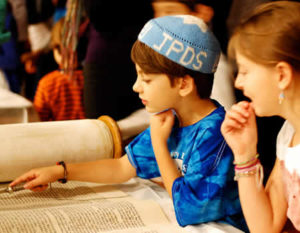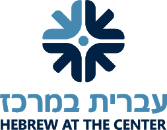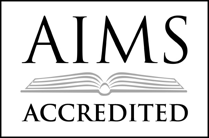Author: dcadmin
In the News: The Kohelet Foundation Interviews Prize-Winning Teacher Lisa Davis
May 4, 2017 by
The Kohelet Foundation interviewed JPDS-NC teacher Lisa Davis about her work on the prizewinning Kindergarten Community Library Project, along with two other JPDS-NC teachers. The Kindergarten Community Library Project won the Kohelet Prize for Development of Critical and/or Creative Thinking. Read the interview here >
- #ThisIsWhy
- Awards
- In the News
- Project Based Learning
In the News: The Kohelet Foundation Interviews Prize-Winning Teacher Xani Pollakoff
May 4, 2017 by
The Kohelet Foundation interviewed JPDS-NC teacher Xani Pollakoff about her work on the prizewinning Kindergarten Community Library Project, along with two other JPDS-NC teachers. The Kindergarten Community Library Project won the Kohelet Prize for Development of Critical and/or Creative Thinking. Read the interview here >
- #ThisIsWhy
- Awards
- In the News
- Project Based Learning
In the News: Prizmah Interviews Middle School Director Lisa Schopf
May 3, 2017 by
Last year, Middle School Director and Sixth Grade teacher Lisa Schopf participated in Prizmah’s YOU Lead program, an eight-month leadership development program for Jewish day school professionals that focuses on mentorship and peer support. Recently Lisa sat down with Shira Loewenstein, the Director of YOU Lead, to talk about her experience in the program and […]
- #DCJewishMiddleSchool
- #ThisIsWhy
- Adult Learning
- In the News
Torah Talk for Parashot Acharei Mot-Kedoshim
May 2, 2017 by
In these parashot, Hashem instructs Moshe regarding the procedures for Yom Kippur (the Day of Atonement); Hashem then tells Moshe to give the people a series of ethical and ritual laws instructing them how to be holy. One verse of this series states (19:18): “Do not take revenge and do no bear a grudge against […]
- Parent-Child Learning
Torah Talk for Parashot Tazria-Metzora
April 26, 2017 by
In these parashot, Hashem instructs Moshe on the purification rituals for mothers following childbirth; describes to Moshe and Aharon the procedures for identifying and responding to those infected with tzara’at (usually translated as leprosy), and the purification ritual for people and homes afflicted with leprosy; and instructs Moshe and Aharon on the laws regarding emission of bodily […]
- Parent-Child Learning
Torah Talk for Parashat Shmini
April 19, 2017 by
After the dedication of the Mishkan (Tabernacle) and the ordination of the cohanim (priests), two of Aharon’s sons bring a strange fire before God and are consumed by fire; God then instructs Moshe and Aharon regarding which animals, fish, and birds may be eaten by the Bnei Yisrael. Both animals and fish display physical characteristics […]
- Parent-Child Learning
Happy Passover Video!
April 7, 2017 by
Chag Same’ach! Happy Passover! We hope you enjoy this video of our students learning and celebrating Pesach!
- Creative Writing
- Holidays
- Israel
- Multimedia
- Project Based Learning
- Visual Arts
Torah Talk for Parashat Tzav
April 4, 2017 by
In this parasha, Hashem tells Moshe to describe to the cohanim (priests) the rituals for some of the offerings; the cohanim then undergo the process of ordination. One of the garments the cohen gadol (high priest) wore was the urim v’tumim, a vestment that is shrouded in mystery. Chapter 8, verse 8 says, “He put upon him the breastplate and on […]
- Parent-Child Learning
"State of the School" Report
March 30, 2017 by
As we embark on this exciting new chapter in our school’s life, it is important to reflect on our goals and priorities we hold as a school and as a community – and to examine our current and future positioning in relation to those goals. The Strategic Plan 2015-2020, approved by the Board of Trustees […]
- Board of Trustees
Torah Talk for Parashat Vayikra
March 28, 2017 by
In this parasha, Hashem commands Moshe regarding various types of offerings, under what circumstances they should be offered, and what they should consist of. The Torah chooses two interesting words for those bringing offerings. Instead of utilizing the common term “ish,” meaning “man” or more generically “person,” it utilizes the following words. Read more >
- Parent-Child Learning









